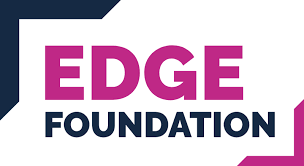Since 2018, Edge's Philosophy of Vocational Education debates have been grappling with fundamental assumptions in vocational training, from policy approaches to pedagogical practice. The second debate in our latest series, chaired by Kevin Orr (University of Huddersfield), once again welcomed four expert panellists. Combining unique perspectives, they tackled a core yet often overlooked question within VET: how broad or narrow should vocational education be?
Opening the debate, Prue Huddleston (University of Warwick) identified what would emerge as a common theme for the discussion: context is as fundamental within vocational education as content. Vocational learners cover a range of ages, skill levels, sectors and experiences. Boiling the discussion down to ‘broad’ or ‘narrow’ oversimplifies things, she argued.
Instead, Prue outlined a continuum for describing VET of varying depths and complexity. At one end is what she called ‘pre-vocational’ learning. VET in this category engages learners by introducing a vocation at a high level, combined with general education. Next is ‘medium-strength’ VET, which includes sector-focused programmes containing work-based elements, for example work experience and other work-related activities (BTECs, for example, might fit this category).

